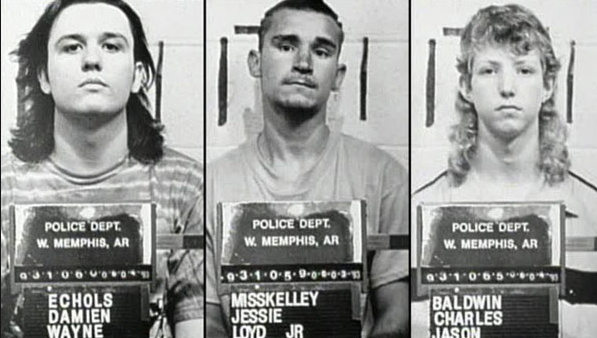 *There are maybe a dozen points that I need to make to preface this post and the ones that will follow but I’ll start with a few of the more salient ones before getting into the meat and potatoes of these episodes.
*There are maybe a dozen points that I need to make to preface this post and the ones that will follow but I’ll start with a few of the more salient ones before getting into the meat and potatoes of these episodes.
- First, I took the case to the producer Sarah Koenig but was not involved in TAL’s (This American Life) investigation other than answering the questions posed to me and giving them whatever documents I had. I have no idea what future episodes will be like, who exactly was interviewed, or what they said. I don’t work for TAL, I only cooperated fully as they spent the last year deconstructing the case. Knowing the immense time and resources they’ve put into this story, I will never trump anything they haven’t yet talked about in the podcast. I honor their incredible work, and will only write about issues raised in episodes already aired.
- Having said that, anything I write, post, tweet is strictly from me and doesn’t represent TAL or Sarah Koenig. I’m pretty sure we don’t agree on many aspects of the case. I badly want her and their team to say “hell yes Adnan is innocent”, but they’re not there and I don’t know if they’ll ever be.
- I, as you may have guessed, don’t just believe Adnan is innocent, I know it. With every bone in my body. This is not a court of law and I don’t represent him, and I’m not a journalist so NO, I don’t have to be objective. I am not objective. I am taking a firm side, the same side I’ve been on for 15 years.
- Lastly, if you’re confused about what I do, I am a lawyer with a very limited legal practice. I’ve been in the field of immigration law for around 14 years, and keep my foot in that door with select clients. For the past three years I’ve spent most of my time in the field of CVE, “Countering Violent Extremism”. To that extent I’m a National Security Fellow with the New America Foundation, run a law enforcement training firm, and work as a CVE consultant on various projects. But I do keep that tiny space Sarah described, in a little strip mall, to meet and work on the infrequent immigration cases I maintain. I maintain that work because it keeps me connected to what I’m pretty damn good at and to the community, and hello I can get fresh kabobs and chai across the street.
THE ALIBI MYSTERY
From the chatter I’ve seen online there seems to be some confusion as to the timeline of events with Asia, the alibi witness who should have been at Adnan’s trial but wasn’t, thanks to his shoddy legal representation. I was in law school when Adnan was arrested and still in law school when he was convicted about a year later, and I can tell you that passionate law students could have defended him better.
I digress.
So here is a bit of an outline, so it’s clear what happened when:
- Hae Min disappeared on January 13, 1999. February 9, 1999 her body is found. Adnan was arrested on February 28th, 1999.
- The very next day, on March 1, 1999 Asia writes him a letter telling him she visited his parents and remembers seeing Adnan at the library after school on January 13th. She writes a second letter dated March 2, 1999 to Adnan as well.
- Adnan passes both letters on to his lawyer. He does not write back to Asia, has no contact with her via phone or in person.
- Adnan is convicted about a year later.
- I first learn of Asia and her letters on the night Adnan is convicted as I’m visiting him in holding in Baltimore city. I realized that the entire case turned on the 20-25 minutes after school let out and so pressed him about that short window of time. He recalls letters written by Asia but tells me that he gave them to the lawyer, and that he was told they didn’t check out (Asia had the wrong date or something). So he never followed up about the letters and never mentioned them until I pushed him to think about it.
- I track down Asia in the following couple of weeks and visit her with my brother Saad. She is a beautiful girl, warm and friendly, and very eager to offer her help. I am floored by her assertion that no one ever contacted her about the case. Not Adnan. Not his lawyer. Not the police. She assumed that her statement was of little or no help to him, so she dropped the issue and never wrote him again. Asia writes out an affidavit on a legal pad I have in the car and we go get it notarized at a local check cashing place.
- I send a copy to the his lawyer and the court, thinking the case can get reopened based on it. I’m a law student with no experience in criminal procedure. I learn that no “new evidence” can be submitted until a post-conviction appeal. A post-conviction appeal cannot be filed until 10 years have passed since the conviction.
- In those ten years various lawyers have filed appeals based on faulty rulings, technicalities, in the trial. They cannot bring up Asia, she is considered “new evidence”. So they can only argue things like the judge ruled wrong on this motion or that motion. A lot of people don’t understand that these appeals are limited to trial proceedings, you cannot have a new trial with every appeal.
- Adnan loses every technical appeal. Ten years pass and we’re ready to file post-conviction through an excellent attorney who is really committed to the case.
- His lawyer has Asia’s letters and affidavit and sets out to find her. His private investigator locates her but returns with terrible news. She won’t testify. The PI never spoke to her but her fiance made it very clear, in a very nasty way that suggested an anti-Muslim prejudice, that Asia would not be involved and to leave them alone. It was devastating to Adnan and his loved ones. All of these years had been passed in the hope that when post-conviction came around Asia would corroborate her letters and affidavit and he would be given a new trial.
- Faced with a tough decision the lawyer decides to submit her documents but not subpeona her for the appeal hearing.
- I testify to how I got the affidavit and my interaction with Asia at the post-conviction appeal hearing about two years ago in October, 2012.
- At the hearing the prosecutor from his original trial testifies on the stand that Asia called him and told him she was pressured into writing the documents, thereby discrediting them. Those of us sitting in the courtroom and Adnan, who sat there in shackles, were again devastated.
- As we waited for the judge’s ruling on the post-conviction, which took over a year, I decided there was nothing more to lose and contacted Sarah Koenig in late 2013, about a year ago.
- Sarah got in touch with Asia a few months later (early 2014) and I can only assume she expected Asia to tell her what the prosecutor said – that she was pressured into writing the documents. But she didn’t. Asia volunteered, clearly and happily as she did to me 14 years ago, the events of that afternoon. Asia remembered the events like it was yesterday, remembered details, and again expressed how she wished there was something to help Adnan if he was innocent. By this time the judge had ruled against Adnan in the post-conviction. It was too late.
Ok, so a little unpacking. It should be clear from Asia’s taped interview with Sarah earlier this year that she was not ever pressured into writing the letters or the affidavit. If she had been pressured, she would have certainly told Sarah, who is interviewing her not long after the post-conviction hearing. The family didn’t know who Asia was, I didn’t know who Asia was. If there was going to be any pressuring, what sense does it make that she would be pressured into writing letters, and an affidavit a year later, but never pressured into appearing for trial? Or that the lawyer was never pressured into calling her to the stand during the trial? If she had been pressured, why didn’t she say that to Sarah?
What she told Sarah in that taped interview we heard in the first podcast is exactly what she told me in person. Voluntarily and without pressure. Why she made that call to the prosecutor and alleged being pressured, I’ll never know.
Its also important to note that neither Asia nor Adnan realized the importance of her statement at the time of his arrest. No one knew, in March 1999, what time Hae Min had been killed. The fact that she had been killed between 2:15-2:36 on January 13th, 1999 came to light during his trial, when the prosecution used cell phone evidence to “prove” that was the pertinent window of time. Remember, their case rested on a 2:36 call to the cell phone Jay had, which Jay alleged was Adnan calling to tell him that he had killed Hae and to come pick him up. So by the state’s own evidence, Hae was dead by 2:36. When Asia wrote those letters, in the two days after Adnan was arrested, she had no idea when Hae was killed or how important her testimony was. Neither did Adnan.
Which brings me to this: all these years later it seems she still does not understand the importance of her testimony. I don’t know why, but there is a severe disconnect between her cheerfully acknowledging she was with Adnan at the library around 2:30 on January 13, 1999 and her understanding that THAT IS WHEN THE MURDER TOOK PLACE.
I’m still praying that Asia will say “enough is enough, an innocent man is in jail and I can help him get out. I was with him when they accuse him of murdering our classmate. I was with him”.
DATING ON THE DL
https://www.youtube.com/watch?v=4oe215S-e20
Comedian Zaid T on “desi” (Southasian) dating. FYI I don’t condone pushing girls around.
“Dating” among Muslims and Southasians is tricky. So tricky that most people aren’t even comfortable calling it dating. Among the euphemisms used for dating are: seeing someone, talking to someone, with someone, involved. But dating? That’s not allowed.
So while episode 2 of the podcast may have shocked and astonished the broader public listening, I can guarantee most Muslims raised in the West, and even kids of immigrant parents from Southasia writ large, were nodding their heads at Adnan’s story.
https://www.youtube.com/watch?v=amShk1X3IHE
The sex talk. If brown/desi/Muslims parents gave it. But they don’t.
The idea that Adnan is an inherently duplicitous and untrustworthy person because he was hiding his dating and girlfriend from his parents is laughable in the Muslim and Southasian context. This is how we do. It’s par for the course and you can bet all of us have our crazy “hiding your boo from your parents” story. Part of it is so we don’t get our butts kicked and part of it is out of respect for our parents and their values.
We all have our mortifying “getting caught” stories too, like Adnan being pulled out of the dance by his parents. When I first heard that, I laughed till I cried. I’ve known girls jumping under tables, literally, when out at a party with a date and spotting someone who knows their parents. Once, while visiting home from college, I was whispering into a phone with my future-ex-husband. My father picked up the other line and for a good three minutes we all went silent. Other than dad’s heavy breathing no one made a sound, even though everyone knew exactly what was happening. Awful at the time, hilarious now.

What really happened in this case (beyond the fact that there was no physical evidence against Adnan) was the prosecution used every negative stereotype about Muslims and Islam and threw it at Adnan, seeing every single thing he did through that filter. The undercurrent of their case is deeply anti-Muslim and Islamophobic, it plays on the fears of nonMuslims about us. Honor killings, religious confrontations, controlling, angry and abusive men, honor besmirched by a young independent woman who left for another man. That was the narrative, the motive framed by the state.
As if young women don’t leave Muslim men every day and survive to tell the tale. As if a Muslim man couldn’t move one from one woman to the next without a fit of rage. As if a Muslim born and raised in the West, having never even visited his parent’s home country, couldn’t be as American as a blue-eyed blond teen in Arkansas. As if a Muslim man couldn’t actually just be a really and genuinely nice person without raising suspicions that he could be a sociopath.
Adnan didn’t just have the prosecution working against him. He also had deeply ingrained fears and suspicions of Muslims working against him.











